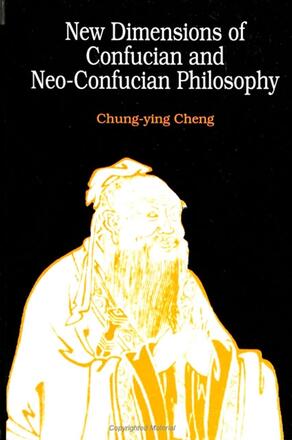
New Dimensions of Confucian and Neo-Confucian Philosophy
Alternative formats available from:
Description
This is the first book to thoroughly explore Confucian and Neo-Confucian metaphysics and ethics, building upon the creativity and temporality of human existence and human nature as well as their extension into human culture. Fundamental essays deal cogently with the relationship between Chinese language and Chinese philosophy, offering general categories which shape the matrix of ideas woven in Chinese philosophy from its very beginnings. Along with more general characterizations, there are themes placing Confucian thinkers in touch with modern communication theories, perceptions of individuals, religious themes, and scientific worldviews. Conceptual and comparative essays probe the frontiers of Chinese philosophy in its contemporary Confucian revival.
Chung-ying Cheng is Professor of Philosophy at the University of Hawaii at Manoa. He is also the founder of the International Society of Chinese Philosophy and the Journal of Chinese Philosophy.
Reviews
"This is a broad and thoughtful survey of many of the leading aspects of Neo-Confucian thought, written by one of the outstanding representatives of this tradition today. It is central to any modern study of Chinese philosophy." — Edmund Leites, Queens College of City University of New York
"Cheng is one of two major Chinese-American philosophers who are attempting to build a world philosophy in the Western context by using and reconstructing the Chinese philosophic tradition. Cheng is brilliant at it — erudite, cultured, original, and highly imaginative. This collection shows him at his best." — Robert Cummings Neville, Boston University
"What I like most about this book is the thoroughness and philosophical acumen with which the author attacks each topic. Cheng certainly has a profound understanding of his subject matter. Each chapter, which forms a self-contained study of one important phase or aspect of Chinese or Confucian/Neo-Confucian philosophy, is itself a solid piece of scholarship." — Lik Kuen Tong, Fairfield University